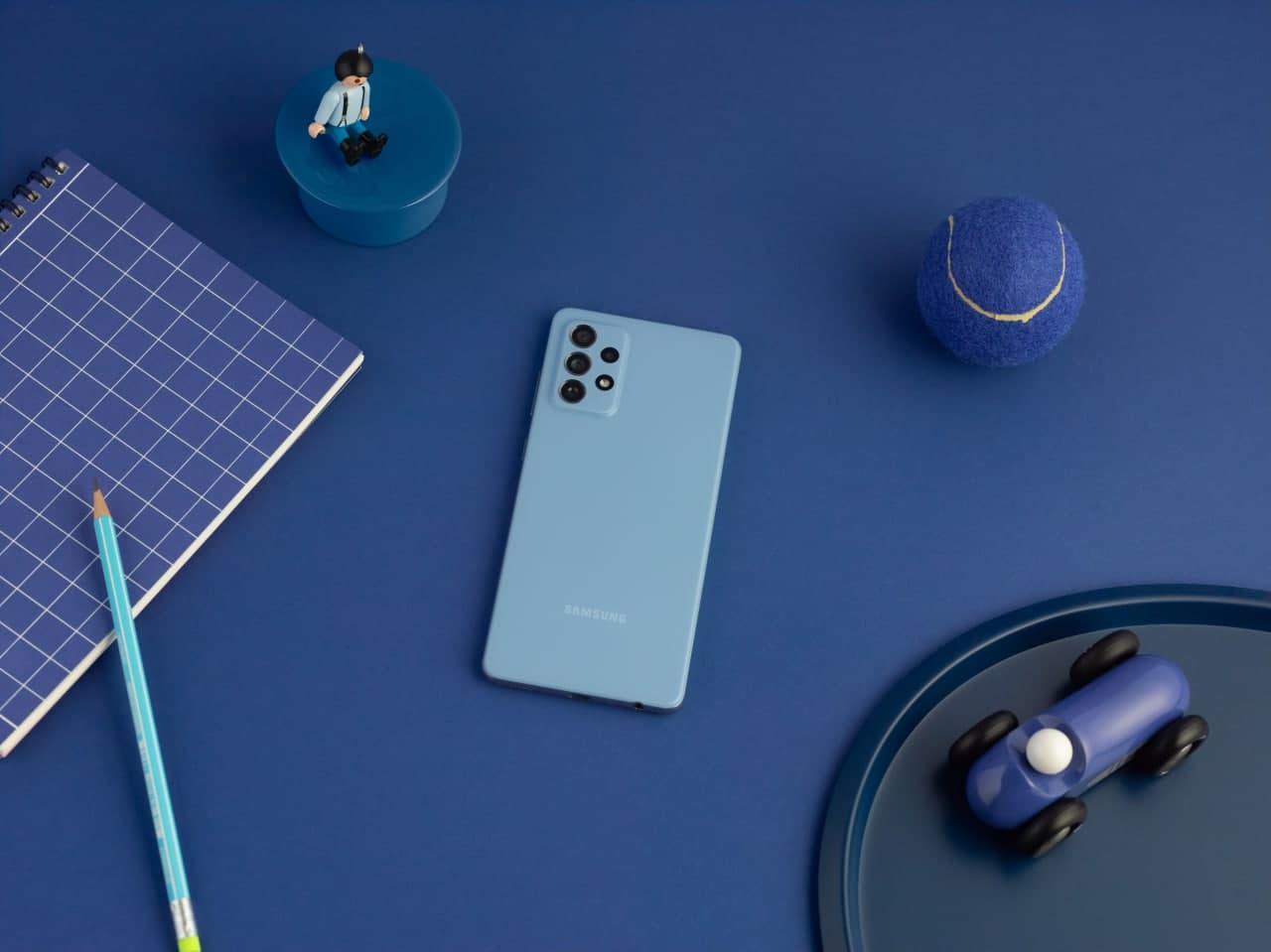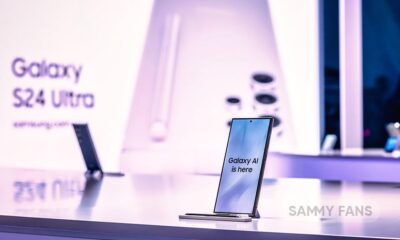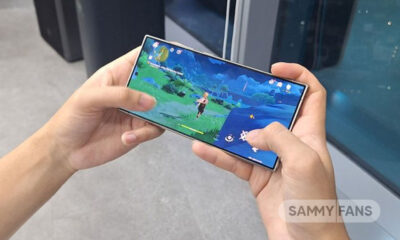
Samsung snatched back the crown from Apple in global smartphone market in Q1 2021
Last year, Samsung remained on the top spot in terms of global smartphone market shipments till the third quarter. But, Apple snatched the crown from Samsung in the fourth quarter of 2021 because of the strong demand for the 5G supported iPhone 12 series.
Moving forward, the South Korean tech giant unveiled its latest Galaxy S21 flagship series ahead of the previous launch periods as an effort to get back its top spot in the global smartphone market. At the same time, the company introduced several mid-range phones that having premium features.
As a result, it looks like the efforts of Samsung giving a significant outcome as it surpassed Apple by shipping 76.5 million units and secured a huge 22% of the total market share. Besides, the Cupertino-based company slipped to its real place (AKA second), shipped 52.4 million iPhones, and captured a 15% share.

After these top 2 smartphone vendors, there are three Chinese brands that have listed in the top five. Xiaomi impressively gained its best single-quarter performance ever, with 62% growth. However, the company sold 49.0 million units with a 14% market share.
Oppo and Vivo completed the top five, shipping 37.6 million units and 36.0 million units respectively. Huawei, which no longer includes Honor, is now in seventh place with 18.6 million units, as the former world number one remains shackled by US sanctions.

Canalys Research Manager Ben Stanton said:
“In addition to great product value, Xiaomi is now also making strides to recruit local talent, become more channel-friendly, and lead in high-end innovation, as seen with the Mi 11 Ultra and its recent foldable, the Mi Mix Fold. Its competitors offer superior channel margin, but Xiaomi’s sheer volume actually gives distributors a better opportunity to make money than rival brands. But the race is not over.”
He added – “Oppo and Vivo are hot on its heels, and are positioning in the mid-range in many regions to box Xiaomi in at the low end. Honor is also a looming threat. It has already struck supply chain deals and is now signing distribution agreements to re-enter several markets in the second half of 2021. Xiaomi is leading the pack, but the race has only just started.”
STAY CONNECTED WITH US:
- Join SammyFans on Telegram
- Like SammyFans.com on Facebook
- Follow SammyFans on Twitter
- Get the latest insights through Google News
- Send us tips at – [email protected]
| Source – Canalys |
News
Google Pixel 9 to outshine Galaxy S24 with Samsung’s latest OLED
Samsung’s latest OLED tech could debut in the Google Pixel 9 series. The next-gen Pixel flagships would outshine Samsung’s S24 Ultra in terms of display. It’s almost confirmed that the Google Pixel 9 series will use OLED based on the Samsung M14 material.
Featuring Samsung M14 OLED, Google Pixel 9 will become the best phones in terms of display quality. More upgrades like new camera sensors and an ultrasonic fingerprint reader could also be included in the upcoming smartphones.
A source inside Google (via AndroidAuthority) disclosed key details. M14 is Samsung’s latest OLED display technology, set to foster the Pixel 9 series. The new iteration offers better brightness and longevity, giving the Pixel 9 an edge over current flagships.
Apple’s upcoming iPhone 16 Pro lineup will also induct Samsung’s M14 OLED. Meanwhile, the Galaxy S24 series, released earlier this year, features the M13-based OLED. There are various advantages of the upgraded panel coming in Pixel 9.
Google’s Pixel 9 would get a 1,800-nit display, while the Pro and Pro XL screens could peak at up to 2,050-nit. It’s worth noting that the company lists HDR values for full-screen brightness, so localized peak brightness values will be even higher.
Samsung could introduce the Galaxy S25 series in January next year. The company’s next-gen flagships will likely feature the new OLED display tech. Meanwhile, its biggest rivals are utilizing the latest display technology in 2024 itself.
Google is gradually increasing its presence in the global smartphone market. The company is seriously expanding its mobile business. The next year’s Pixel phones would be equipped with 3nm processors manufactured by TSMC.
News
Here’s why Google Messages replaced Samsung Messages on Galaxy devices

Samsung’s latest foldable phones come with Google Messages by default. The company has now revealed the reason behind this move on Galaxy devices. Samsung says Google Messages replaced Messages to foster RCS adoption.
According to AndroidAuthority, a source explained Samsung’s decision to switch to Google Messages as the default messaging app. The recently released Galaxy Z Flip 6 and Z Fold 6 come with Google Messages with RCS enabled by default.
Looks like promoting Google Messages on Galaxy devices will boost RCS adoption. Samsung Messages isn’t already installed on newer phones. However, one’s stopping you from getting it on your Galaxy from the Galaxy Store.
While many apps support the RCS feature, Google Messages offer the best user experience. Making it a default messaging app is an effort to boost the adoption of RCS tech. Apple is also preparing to bring RCS chat functionality to iMessage for iPhones.
What Samsung source said:
- Even if messaging apps follow the RCS standard, the availability may be limited depending on which app the other party uses. That’s why we decided to make Google Messages the common messaging platform, allowing Galaxy users to communicate more freely. This also enables a messaging app to respond to changes of the RCS standard more quickly and efficiently.
Previously, Samsung devices launched in the US came with two messaging apps. This time, the company has removed the Samsung Messages. During the first setup, users are notified that Google Messages is the default messaging application.
News
Samsung SmartThings gets ISO 27001 certified

Samsung SmartThings gained the international standard ISO/IEC 27001:2022 certification. The company has officially announced this major development in its global connected living platform.
SmartThings received ISO/IEC 27001:2022 certification for information security management systems. Certification reiterates that the SmartThings Cloud operates per international standards.
To be certified, a company has to meet the standard across a total of 123 detailed items, including policies for information security, access control for information assets, and incident response.
SmartThings receiving the ISO 27001 certification is the result of our sustained focus on the protection of information in a hyper-connected world with exponentially increasing intelligence.
Seungbum Choi, Executive Vice President and Head of Device Platform Center at Samsung Electronics said “this is just another step in our drive to fortify the platform’s security. We will continue to find new ways to ensure that SmartThings’ personalized services are provided even more safely.”

BSI Prez says that they have recognized that the operation capability and security level of Samsung SmartThings is excellent. It will further boost trust in the SmartThings platform and strengthen business competitiveness.
ISO 27001 is the leading global standard for ISMSs and was established by the International Organization for Standardization. It provides companies with guidance to manage the risks to information assets systematically and achieve information protection goals.








